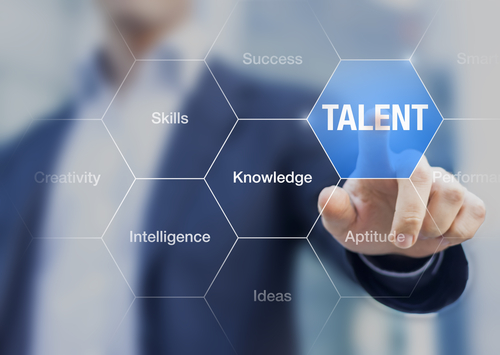The rapid evolution of artificial intelligence (AI) has ushered in a new era for a wide range of business applications, including talent management. Most recently, with the sudden interest in generative AI (GenAI), there’s been a surge in skills assessment, mapping, and matching software offering big benefits for learning and development (L&D) professionals.
But, while AI’s capabilities and potential applications are vast, understanding AI’s strengths and limitations is crucial, especially in the field of talent management. Talent managers need to be able to determine what aspects of their roles AI can enhance and what aspects it has the potential to negatively impact.
Here, we take a look at four potential use cases of AI in talent management.
Automated Screening
Long before the recent GenAI boom, automated screening had become a standard in hiring. It’s a natural fit, especially for employers that receive hundreds—even thousands—of applications for open roles. As AI continues to advance, there will be added opportunities for more nuanced, skills-based hiring, moving beyond screening résumés to helping organizations and their talent managers understand the multifaceted nature of the various skills they need in specific roles.
Skills Mapping
AI excels at parsing vast amounts of data and drawing conclusions from that data. In talent management, this offers the ability to make sense of complex skills data inputs, to better assess skills, to map requirements, and to recommend upskilling pathways. This can be especially useful when considering applicants without traditional qualifications.
Career Exploration
Beyond skills, a successful career encompasses interests, values, and networks. While current AI tools may not be adept at these softer aspects, there’s potential. For instance, according to Fast Company, AI bots like Uplimit go beyond a focus on skill development to also offer engagement, acting as a form of “moral support” for learners.
Career Readiness
AI can potentially aid in career readiness, offering feedback on networking strategies or simulating professional conversations. These high-tech tools also have the potential to suggest connections based on career aspirations, bridging the gap between current skills and desired career paths.
The fusion of AI and talent management promises a transformative future for talent management professionals. Beyond screening, skills mapping, and professional development, AI-powered tools have the potential to revolutionize career development in a holistic way. This can help employers of all types and sizes meet the professional growth and development demands of the 21st-century workplace.
Lin Grensing-Pophal is a Contributing Editor at HR Daily Advisor.

